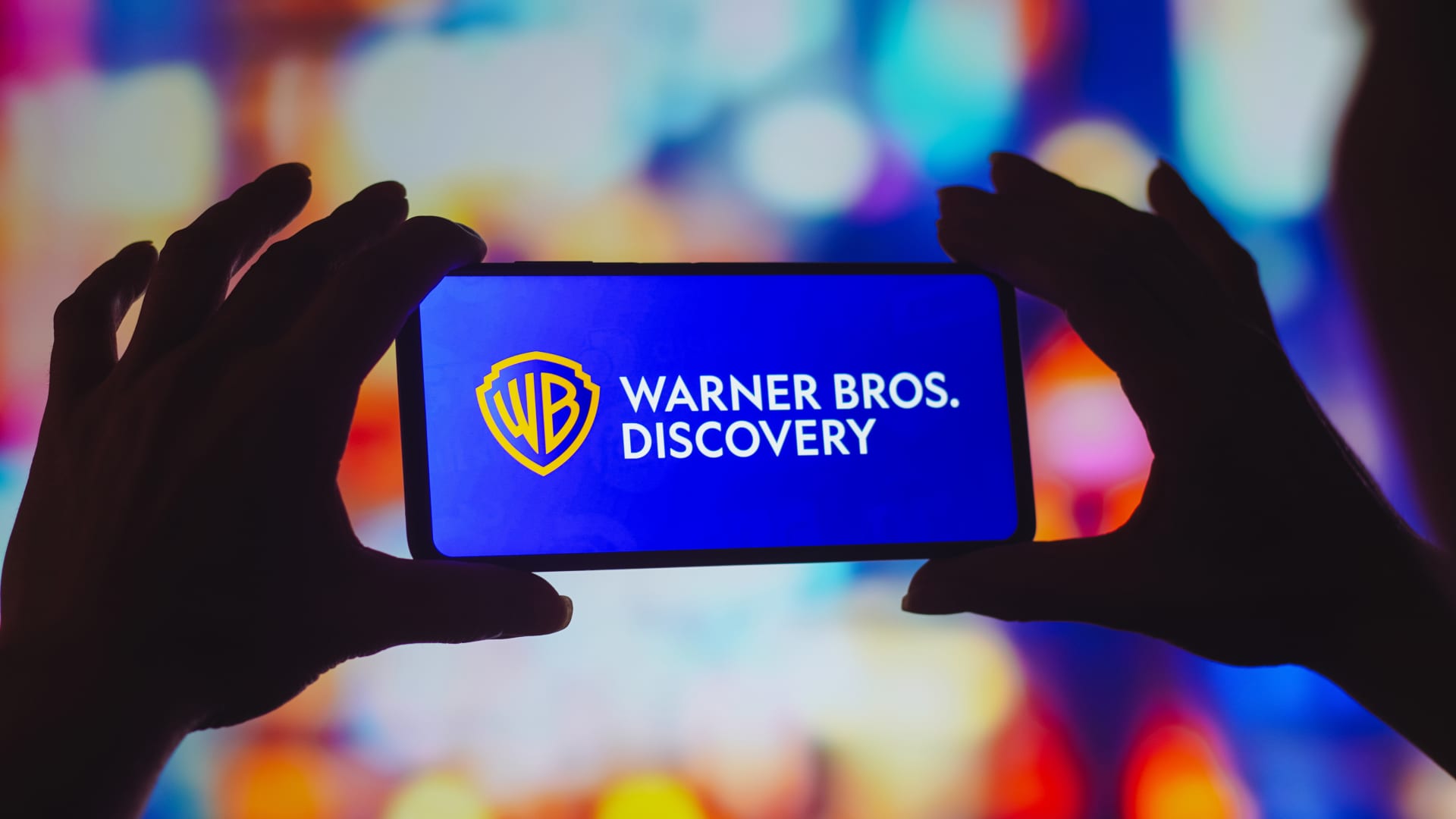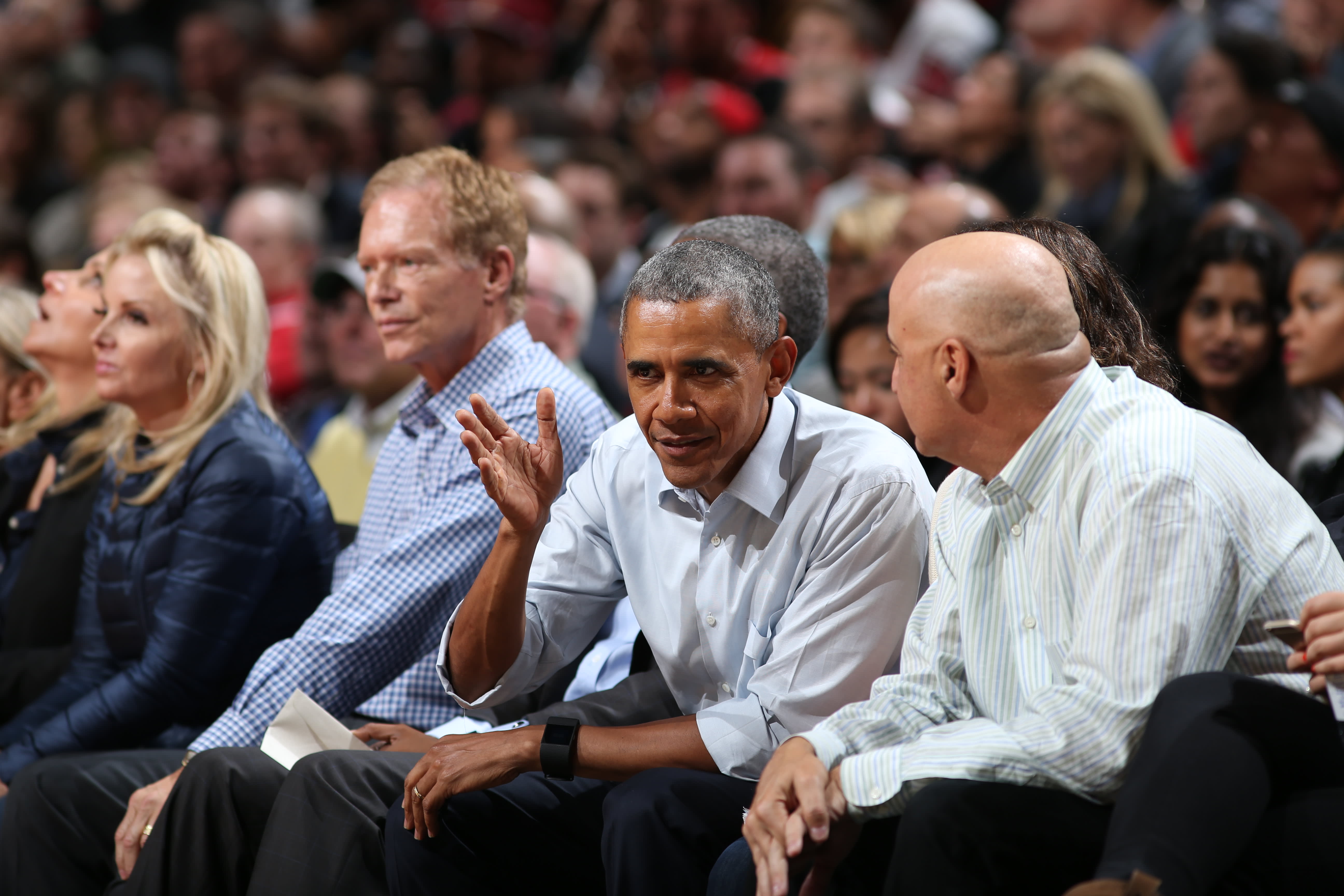Warner Bros. Discovery misses first-quarter estimates despite streaming growth
Warner Bros. Discovery reported first-quarter earnings before the bell on Thursday.

In this photo illustration, the Warner Bros. Discovery logo is displayed on a smartphone screen.
Rafael Henrique | SOPA Images | Lightrocket | Getty Images
Warner Bros. Discovery reported first-quarter results on Thursday, missing analyst expectations on both the top and bottom lines despite strength in its streaming unit.
The company's stock fell nearly 4% in premarket trading.
Here is how Warner Bros. Discovery performed, compared with estimates from analysts surveyed by LSEG:
Loss per share: 40 cents vs. 24 cents loss expectedRevenue: $9.96 billion vs. $10.231 billion expectedWarner Bros. Discovery — which owns streaming service Max, a portfolio of cable TV networks including TNT and Discovery, and a film studio — said revenue fell 7% to $9.96 billion compared to the same quarter last year.
Warner Bros. Discovery posted a net loss attributable to the company of $966 million, or 40 cents per share, an improvement from the year-ago quarter when it reported a loss of $1.07 billion, or 44 cents per share.
The company said total adjusted earnings before interest, taxes, depreciation and amortization were down roughly 20% during the first quarter to $2.1 billion, noting its "Suicide Squad: Kill the Justice League" video game generated significantly lower revenues.
Streaming growth
Warner Bros. Discovery said Thursday it added 2 million direct-to-consumer streaming subscribers during the quarter, bringing its total to 99.6 million.
That segment earned an adjusted $86 million during the quarter, an improvement of $36 million from the prior-year quarter, the company said. It also saw revenue increase "modestly" to $2.46 billion from the prior-year quarter.
Advertising revenue for streaming proved to be a bright spot, increasing 70%, boosted by higher engagement on Max in the U.S. due in part to subscriber growth in the streaming service's ad-lite tier and the launch of sports on the app.
The earnings release follows an announcement this week that Warner Bros. Discovery would bundle its streaming services with those of Disney — tying together Max, Disney+ and Hulu — and offer it to consumers this summer, a callback to the traditional pay-TV package. Pricing has yet to be disclosed, but it will be offered at a discount, CNBC reported.
It marks the first time two media giants are joining forces to offer a streaming bundle as the push to make streaming profitable continues. While TV networks have long been a cash cow for media companies, the bundle continues to bleed subscribers.
"As you know, I've been a big proponent of bundling," CEO David Zaslav said on Thursday's earnings call. He noted subscribers will have to stick with the bundle to take advantage of the cheaper pricing offering, which should then reduce so-called churn, referring to people dropping their subscriptions.
The entertainment streaming bundle marks the second partnership with Warner Bros. Discovery and Disney in recent months. The companies, along with Fox Corp., previously announced a sports streaming joint venture that will launch this fall.
Sports rights
On the sports front, Zaslav said Thursday that media rights negotiations with the NBA — which has long been a staple on cable channel TNT — are still ongoing, and he is "hopeful to reach an agreement that makes sense for both sides."
NBCUniversal recently made an offer to once again own the rights, CNBC previously reported. Zaslav noted while the company has strategies in place for various outcomes, its deal with the NBA includes the right to match any other offers before the league makes a decision.
Last fall Warner Bros. Discovery began offering NBA games on Max.
The company has been rolling out Max across the globe, and Zaslav noted on Thursday it will enter more European markets ahead of the Summer Olympics in Paris. While NBCUniversal holds the U.S. rights for the Olympics, airing the games on its TV networks and Peacock streaming service, Warner Bros. Discovery's Max will be the streaming home in Europe.
TV, Studios weakness
Though advertising revenue was strong in streaming, it remained weak for Warner Bros. Discovery's TV networks, as did the segment as a whole.
TV networks revenue was down 8% to $5.13 billion, with advertising revenue down 11%. While the ad market has been soft for some time now, recent quarterly earnings show there has been improvement for digital and streaming while traditional TV lags behind.
Meanwhile, Warner Bros. Discovery's studio segment revenue was down 12% to $2.82 billion compared to the same quarter last year. The segment was weighed down by the lackluster release of the latest iteration of "Suicide Squad" and the lingering effects of the Hollywood writers and actors strikes last year.
On Thursday, Zaslav said the company is striving "to return the luster" to its film studio. As part of that, he announced work is underway for the latest installment of "Lord of the Rings," with an anticipated release in 2026.
The company's cash position improved, with free cash flow increasing to $390 million, a $1.3 billion improvement from the same quarter last year, the company noted.
Warner Bros. Discovery has been working to reduce its debt load, which now stands at $43.2 billion, stemming from the merger of Warner Bros. and Discovery in 2022. On Thursday the company said it repaid $1.1 billion in debt during the quarter, and also announced a $1.75 billion cash tender aimed at further reducing its debt.
Disclosure: Comcast NBCUniversal is the parent company of CNBC.
This story is developing. Please check back for updates.

 Konoly
Konoly 
































